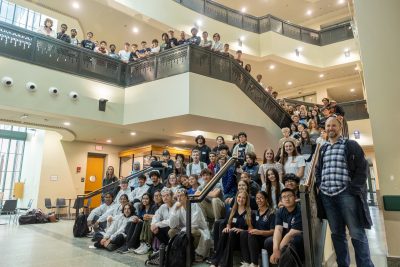| 2024-25 Student Events Map | 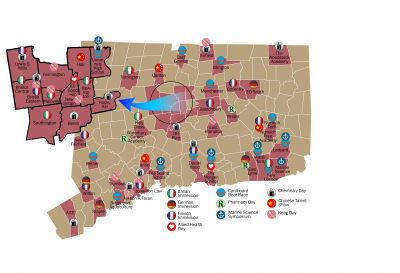 |
| Marine Science Symposium, UConn Avery Point, May 22 & 28, 2025 | 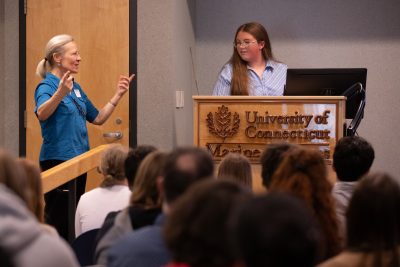 |
| Allied Health Days, April 9 & 28, 2025 | 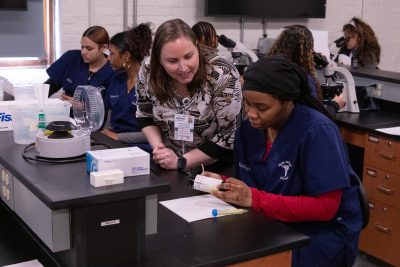 |
| 2025 State Science Olympiad Competition, March 2025 | 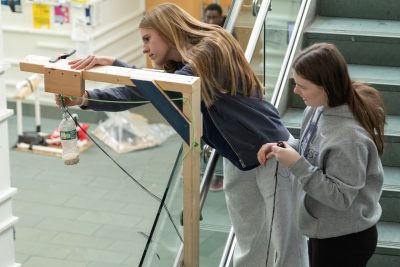 |
| Rights and Responsibilities in History, March 2025 | 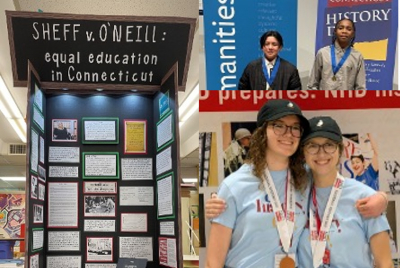 |
| UConn Italian Multimedia Competition, May 2025 |  |
| UConn ECE MELD, May 2025 | 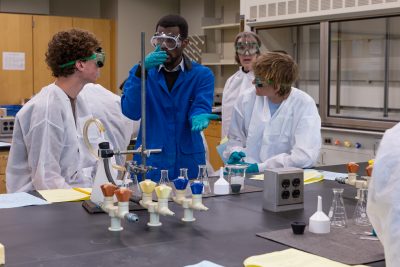 |
| UConn ECE Health Sciences Day, March 2025 |  |
Author: Carissa Rutkauskas
Professional Development Workshops
Student Events: Italian Multimedia Competition
Student Events: Connecticut Science Olympiad
Student Events: Connecticut History Day
Investing in Continued Success
Student Events: Marine Science Symposium, UConn Avery Point
Student Events: UConn Chem Day
UConn ECE Instructor Summer Travel: They did it all!
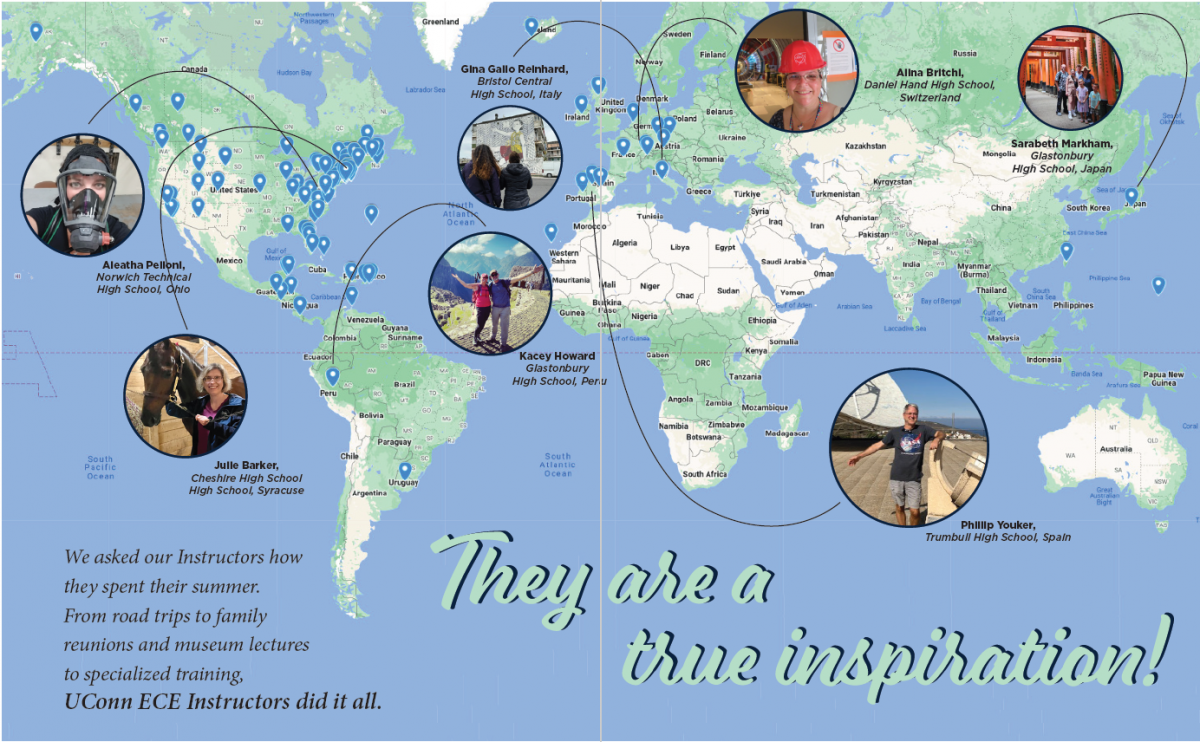
Aleatha Pelloni, Norwich Technical High School, Cincinnati, OH Emergency Chemical Response Certification and the Emergency Chemical Response Train the Trainer Course. It was an intensive and enlightening experience that has enhanced my knowledge and skills in emergency preparedness. I am committed to ensuring the safety and well-being of our students, and this certification will further enable me to respond effectively in any unforeseen circumstances.
Alyssa MacLean, Robert E Fitch High School, Diamond Cove Island, ME Exploring and having fun.
Amber Hammond, E C Goodwin Technical HS, St John USVI Spent time on St. John’s beautiful beaches
Amy McLeod, Bridgeport Reg Aqua Sci Tech, Acadia National Park Explored the beautiful national park
Amy Bigelow, Franklin Academy, Exeter, NH Phillips Exeter Academy for the week-long Anja S. Greer Conference on Mathematics and Technology. I immersed myself in the high school student experience by taking 2 classes (complete with hours of nightly homework after a full day) — Problem Solving in Geometry & Math of Gerrymandering. When not in class or doing homework, I attended a wealth of talks and small group discussions ranging from mastery-based grading to playing with bubbles to building the classroom community.
Andrea Kremzar, Trumbull High School, New River Gorge, WV I explored the trails and all that nature has to offer!
Angela Gulielmetti, Cheshire High School, ME I spent time at the beach and prepared a new course on Fin-de-siecle Vienna that I am now teaching at CCSU.
Beth McCormick, Portland High School, Alaska 1st ever cruise to Alaska from Seattle with 2 of my siblings
Bonnie Johnston, Marine Science Magnet HS, North Cascades, WA I traveled to multiple National Parks in the Southwest where I learned more about the processes that shaped the land over millions of years. I also visited multiple dams and learned about Hydroelectric power, and its impact upon human communities and the surrounding ecosystems.
Brendan Wilkosz, Berlin High School, UT Utah for grading AP Exams professionally and Maine to hike Mount Katahdin
Brett Flowers, Christian Heritage School, Acadia National Park, ME Hiked the mountains of Acadia – the Bee Hive, the Bubbles. Also biked the carriage roads through the park!
Catherine Kotula, East Windsor High School, Pensacola, FL Visited the naval museum in Pensacola and saw the Blue Angels fly which included the first female demonstration pilot in the Blue Angels: Amanda Lee.
Chase Martin, Greenwich High School, Glacier National Park, MT I completed a four day, 50 mile backpacking trip in the North Fork area of Glacier National Park. I’m passionate about hiking and backcountry camping. This was a personal, non-academic trip.
Chelsea Dodds, North Branford High School, CA Fund for Teachers grant to study John Steinbeck. Studied Steinbeck’s life and works and the setting for Of Mice and Men. I had the opportunity to visit the archives at the National Steinbeck Center and meet with leading scholars on Steinbeck.
Christopher Lacilla, Holy Cross High School, Cape Cod, MA My family went to Cape Cod this summer for a week in July. In all honesty, Cape Cod is where I find so much peace and solace. My dream is to live there one day.
Christopher Tait, Ridgefield High School, Charleston, SC We went to South Carolina to tour Charleston, go to the beach, and enjoy some family time!
Christopher Darby, Middletown High School, Kingsport, TN This summer my wife and I traveled to Tennessee and South Carolina to visit family. We also attended a family reunion in Sand Diego and visted Joshua Tree National Park.
Deb Field, South Windsor High School, NC A week hiking in the mountains, a week in OBX
Diane Szymanski-Herr, Waterford High School, ME Jackson labs PD for BIO 1107. I had a refresher on biotechnology technique and learned about bioinforatics resources and labs. I also learned how to order their free kits for my classroom.
Eileen Marquez, New Britain High School, Orlando, FL Educators Rising National Competitions are performance-based competitive events in which aspiring educators demonstrate their knowledge, skills, and leadership in education. With a blend of individual and team events, competitions are authentic, engaging opportunities for rising educators to stretch their creativity, commitment, and professionalism.
Elizabeth Criscuolo, The Morgan School, Salem, MA Visit family and introduce my new baby boy to his cousins, aunts & uncles, grandparents, and great-grandparents! The picture shows my grandparents (my son’s great grandparents), my son (in the red overalls), and my son’s first cousins (the three on the right) and second cousin (baby on the left)
Ethan Brown, Bristol Central High School, Puerto Rico We stayed in the jungle, raced through the mountains, explored caves, swam under waterfalls, went to the beach, and visited the forts in San Juan.
Friso Hermans, Shepaug Valley School, CO I took the train from New York to California and Colorado. I took my bike with me, and went mountain biking in Truckee, Point Reyes, Boulder and Cody.
Gregg Basbagill, Trumbull High School, Mount Whitney, CA I wanted to summit the highest point in California (the highest point in the US outside of Alaska). This year, because of the historic snowfall in the Sierras, this was mostly a snowfield trek, requiring an ice axe and microspikes. It was a great adventure!
Holly Turner, Bridgeport Reg Aqua Sci Tech, Stellwagen Bank, Cape Cod, MA
James Vicario, Cheshire High School, Cape Cod, MA We went on a family vacation- lots of swimming, sea shell collecting and bird watching
James Royce, Xavier High School, Plymouth, MA I visted the “living museum” of the Plimouth Village, Pautuxet Village, and recreation of the Mayflower (Mayflower II) with my family.
Jennifer Wood, Mark T Sheehan High School, Disney, FL We went to Disney for a Dance the World event. My stepdaughter danced in Disney Springs and Epcot and my son loved seeing the characters and eating ice cream.
Jennifer Stefanowicz, Stonington High School, Vieques, Puerto Rico My family and I night-kayaked through the bioluminescent bay in Vieques, hiked through el Yunque, splashed in the waterfalls, explored las Cavernas del Río Camuy, and savored the delicious food.
John Girard, Plainville High School, Brunswick, ME I attended a week-long professional development sponsored by The Jackson Laboratory learning more about genomics and bioinformatics.
Josephina Ferreiro-Morodo, Fairchild Wheeler Sci Magnet, FL I spent time reading, relaxing and reviewing curriculum. Read “Ornament of the World” by Maria Rosa Menocal and “Soldados de Salamina” (reread) by Javier Cercas.
Julie Barker, Cheshire High School, Syracuse, NY Syracuse International Horse Show. My American Saddlebred “Heir Raid NKF” participated in his first horse show!
Karen Cook, Norwich Free Academy, Yorba Linda, CA Nixon Presidential Library for Gilder Lehrman Seminar on U.S. Foreign Policy
Karima El-Hamraoui, Lyman Hall High School, CO First time going to Midwest and doing road trip for 2 weeks. i visited with my youngest daughter all the State park and first time doing sand boarding
Karon McGovern, New Fairfield High School, New England Appalachian Trail Trying to complete Appalachian Trail miles from NJ to VT
Kathleen Mack, Stratford High School, Block Island, RI My family (husband, teenager, and cat) sailed to Block Island on my Hunter 340 sailboat and spent a wonderful week on a mooring in the Great Salt Pond. We hiked the Clay Head Trail and enjoyed the great weather.
I turned my car into a camper and camped all over CT and NY states. I built a platform in my car and camped off the Appalachian Trail. In the Shenandoah Valley, I saw a full rainbow.
Laura Laflamme, Suffield High School, USA 13 states to camp and kayak. Drove over 5,000 miles throughout the eastern United States. Besides camping and kayaking, I was able to upload 100’s of photos of plants for my coursework.
Lauren Korman, Academy of Our Lady of Mercy, CO, WY, SD Visiting American landmarks such as Mount Rushmore, sites on the Overland Trails, old mining towns of the west,visiting the Badlands, Devils Tower, Yellowstone, Hiking in the Rockies and Grand Tetons.
Lisa Abel, Simsbury High School, Uncasville, CT I participated in the CT Teacher of the Year Council events as a state finalist including the Empowered to Lead Symposium at Mohegan Sun and the Mystic Seaport Workshop. I served on a panel for educators about teacher experiences, learned about educational programming available to teachers in CT, and formed meaningful connections with teachers in many districts.
Lori Bennett, Wamogo Reg High School, Everglades, FL South Florida for an Eco trip with students – Everglades, toured 10,000 Islands, Snorkeled & kayaked in the Keys, toured a Turtle Hospital & Dolphin Research Facility.
Maria Miraballes, Westhill High School, WA Personally I did a 12 day road trip through the Pacific Northwest through Washington and Oregon. It was amazing. Professionally I’m a master teacher for the Gilder Learner Institute and co-taught a course with Professor Margaret O’Mara from the University of Washington.
Nicole Wilcox, Southington High School, Alaska Observe Alaska’s approach to preserving natural resources (including wildlife rehabilitation/care, agri-tourism, gold mining, marine/ aquatics and outdoor recreation) to create related hands on learning opportunities for agriculture students.
Shelley Osowiecki, RHAM High School, MO I drove to Montana with my family, including my dog, and my sister’s family to visit our extended family. We explored Badlands National Park in South Dakota and Yellowstone National Park in Wyoming. The Gran Prismatic and the Little Falls are my favorite sections.
Susan Palmberg, Edwin O Smith High School, Cambridge, MA MIT for the Lemelson-MIT invention education Professional Development and to UConn for the DaVinci Program specifically the Virtual Reality session. UConn DaVinci program I learned how Virtual Reality can be used in the classroom. The takeaways I received will be used in the ECE Multivariable course. For the Lemelson-MIT workshop, I learned how students can be inventors and how I as a teacher can facilitate.
Tim Sweigard, Orville H Platt High School, Jackson Hole, Wyoming/Yellowstone and Teton National Parks
Trina Bowman, Academy of Our Lady of Mercy, Plymouth, MA, We took in the sites – historic Leyden Street, 1749 Courthouse, Burial Hill, Brewster Gardens,Plymouth Rock, Plimoth-Patuxet Museum, Mayflower II
Xinyu Li, Glastonbury High School, RI Block Island, Philadelphia, and Mount WashingtonI traveled with my family during summer time and enjoyed a lot of good food, scenery, and stories we heard along the way
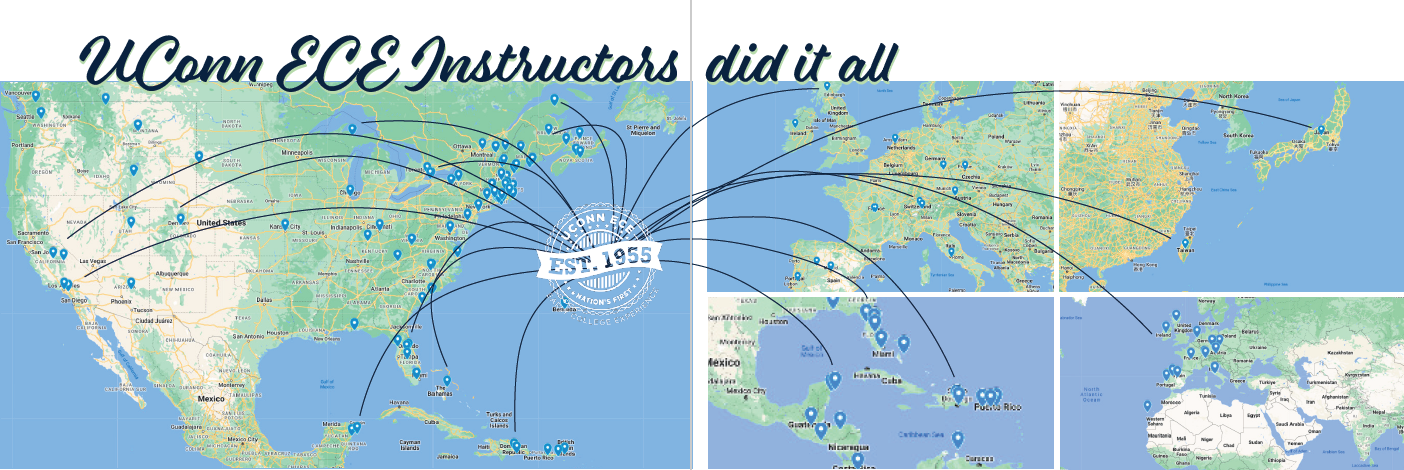
Alina Britchi, Daniel Hand High School, Taiwan I participated in the International Teacher Week Program (ITW2023) organized by CERN, European Center for Nuclear Research. I was one of the four American teachers and one of the 33 teachers from 24 different countries. We attended lectures given by experts in the field, collaborated in lab and group activities and visited numerous sites, many not open to the general public.
Dawn Demeo, Cheshire High School, Uruguay I did a Fulbright for Global Teaching Exchange program.
Danielle Melino, Housatonic Valley Regional HS I traveled to Ireland and Scotland in July. While there we toured Kildare National Stud Farm, Dublin, Edinburgh, Ruthven Farm, Blarney castle, Belfast, Loch Ness, and Culloden Battlefields. This was a custom Agriculture trip that I designed for students and staff.
Gina Gallo Reinhard, Bristol Central High School, Italy I am researching street art in Italy
Jessica Chapman, Norwich Free Academy, El Salvador I look a year leave to teach at an American international school in San Salvador, El Salvador.
Jeremy Taylor, Old Saybrook High School, Alberta Province, CA Visited friends at University of Alberta, and toured national parks at Banff
John LaMendola, Brookfield High School, Italy, France, Germany, Austria and Switzerland Traveled with American Music Abroard Honor Bands, Choirs and Orchestras and performed in various locations throughout Europe
Joseph Deldebbio, John F Kennedy High School, Tulum, Quintana Roo, Mexico Toured the Mayan ruins with my family. What a beautiful and captivating ancient city, such well-preserved temples & stunning coastal views.
Kacey Howard, Glastonbury High School, Peru My husband and I hiked the Inca Trail to Machu Picchu. We embarked on a 5 day homage to Machu Picchu. The trail is around 25 miles and has an elevation gain of 7,972 feet!
Karen Oliver, Glastonbury High School, Magog and Quebec City (province of Quebec) Walking, bookstores, restaurants, vineyard, reading
Kristen Sparks, Coventry High School, Bermuda
Maria Sanhueza, Wethersfield High School, Peru Visited family and went to celebration of the town of Cabana.
Marianna Wikarska, Nathan Hale-Ray High School, Gaspesie
Mario Ramos, Glastonbury High School, Salamanca, España Chaperoned 13 students from Glastonbury High School
Mary-Ann Sagnella, John F Kennedy High School, Italy I interviewed multi-ethnic Italian students who live biculturalism within Italian society with a Fund for Teachers Grant. I traveled to: Rome, Florence, Milan, Naples, Caserta, Terracina and Fondi.
Miao Hwang, Miss Porters School, Taiwan Take care of my 90 year old mother and meet with teachers who teach in US.
Nora Mocarski, Canton High School, Hopewell Rocks, Canada Travelled to experience the extreme tidal change – 36 foot tide.
Phillip Youker, Trumbull High School, The Canary Islands, Spain Through a Fund for Teachers Grant I was able to visit the Canary Islands. While there I toured two world-leading observatory installations on the islands of Tenerife and La Palma.
Rita Jackson, Warren Harding High School , Brazil, Dominican Republic I participate with a Missions Team who provides clothes, books and other supplies to needy families in the poor areas in Brazil and D.R. We also do fun things with the children of the towns with songs, dances and games. We typically leave them with school supplies and other necessaties.
Sarabeth Markham, Glastonbury High School, Japan Utilizing the amazing Shinkansen (bullet train) system, I introduced my four children to the beauty, culture, and cuisine of Kyoto, Osaka, and Tokyo.
Stacey Scapeccia, Stratford High School, Guatemala Health ambassador with Squads Abroad
By the Numbers: 2023-24
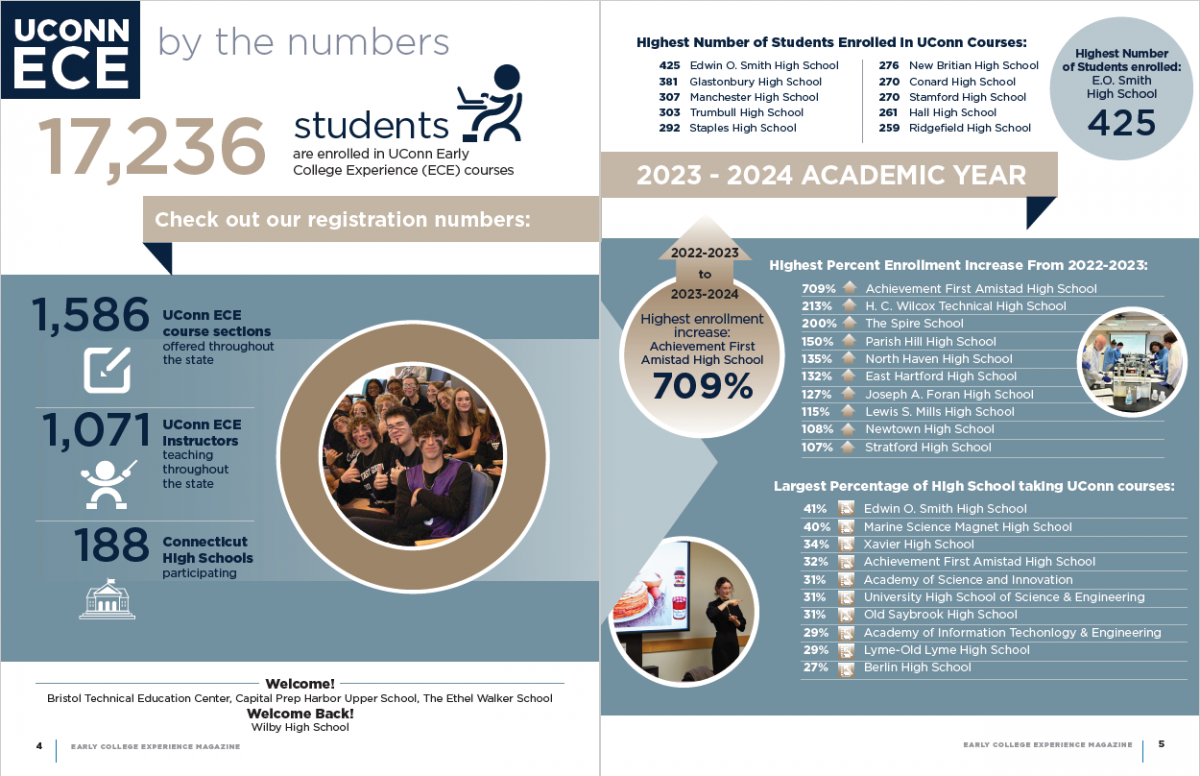
17,236 students enrolled in UConn courses through UConn ECE
1,586 UConn ECE course sections offered throughout Connecticut
1,070 UConn ECE Instructors teaching throughout Connecticut
188 Connecticut High Schools participating
Welcome !
- Bristol Technical Education Center
- Capital Prep Harbor Upper School
- The Ethel Walker School
Welcome Back!
- Wilby High School
Highest Number of Students Enrolled in UConn Courses:
- 425 Edwin O. Smith High School
- 381Glastonbury High School
- 307 Manchester High School
- 303 Trumbull High SChool
- 292 Staples High School
- 276 New Britain High School
- 270 Conard High School
- 270 Stamford High School
- 261 Hall High School
- 259 Ridgefield High School
Percent Enrollment Increase From 2022-2023:
- 709%
- 213% H. C. Wilcox Technical High School
- 200% The Spire School
- 150% Parish Hill High School
- 135% North Haven High School
- 132% East Hartford High School
- 127% Joseph A. Foran High School
- 115% Lewis S. Mills High School
- 108% Newtown High School
- 107% Stratford High School
Largest Percentage of High School taking UConn courses:
- 41% Edwin O. Smith High School
- 40% Marine Science Magnet High School
- 34% Xavier High School
- 32% Achievement First Amistad High School
- 31% Academy of Science and Innovation
- 31% University High School of Science and Engineering
- 31% Old Saybrook High School
- 29% Academy of Information Technology & Engineering
- 29% Lyme-Old Lyme High School
- 27% Berlin High School
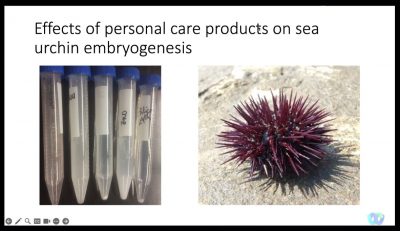
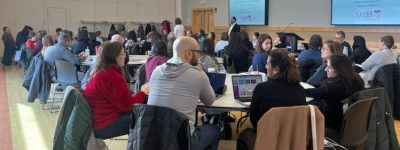 UConn ECE Faculty Coordinators from Spanish, Profs. Gustavo Nanclares and Eduardo Urios-Aparisi met with more than 60 Spanish Instructors to listen to Prof. Maria Acosta Cruz, Professor of Spanish in the Language, Literature & Culture Dept at Clark University. Prof. Acosta shared her talk “Ecocrítica, cultura y nación: La cultura puertorriqueña a través de cinco siglos” (“Ecocriticism, Culture, and Nation: Puerto Rican Culture Through Five Centuries”) with the teachers.
UConn ECE Faculty Coordinators from Spanish, Profs. Gustavo Nanclares and Eduardo Urios-Aparisi met with more than 60 Spanish Instructors to listen to Prof. Maria Acosta Cruz, Professor of Spanish in the Language, Literature & Culture Dept at Clark University. Prof. Acosta shared her talk “Ecocrítica, cultura y nación: La cultura puertorriqueña a través de cinco siglos” (“Ecocriticism, Culture, and Nation: Puerto Rican Culture Through Five Centuries”) with the teachers.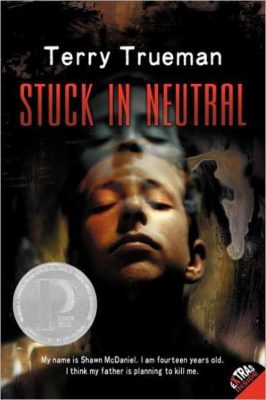
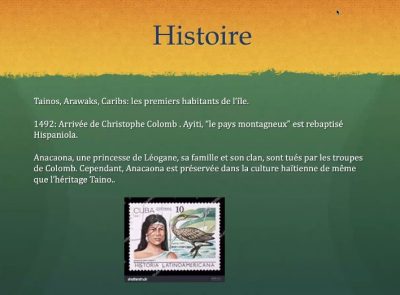 UConn ECE Faculty Coordinator from French, Prof. Florence Marsal met with 30 UConn ECE certified French Instructors to hear from Joëlle Vitiello, Professor of French and Francophone Studies at Macalester College for her talk “Enseigner les trésors d’Haïti” (“Teaching the Treasures of Haiti”). In addition, Mary Catherine Decoteau, Career Consultant from UConn’s Career Services, spoke to teachers about enhancing and highlighting career competencies in UConn French courses.
UConn ECE Faculty Coordinator from French, Prof. Florence Marsal met with 30 UConn ECE certified French Instructors to hear from Joëlle Vitiello, Professor of French and Francophone Studies at Macalester College for her talk “Enseigner les trésors d’Haïti” (“Teaching the Treasures of Haiti”). In addition, Mary Catherine Decoteau, Career Consultant from UConn’s Career Services, spoke to teachers about enhancing and highlighting career competencies in UConn French courses.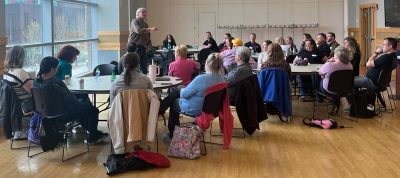
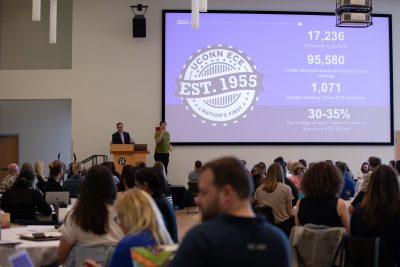
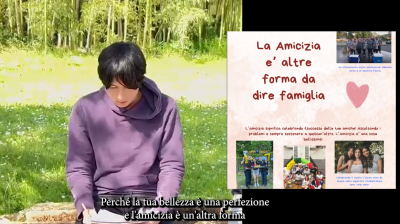
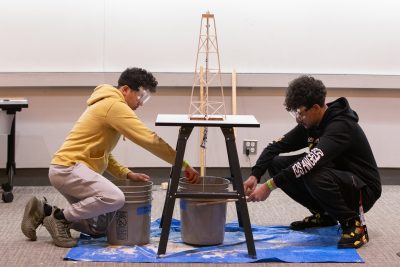 rs.
rs.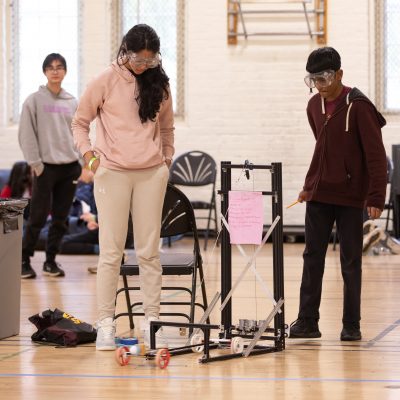
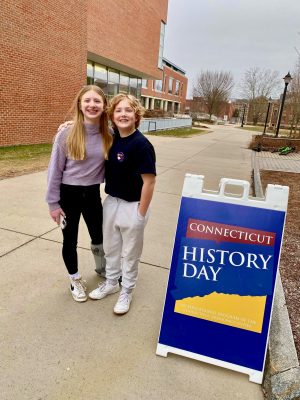
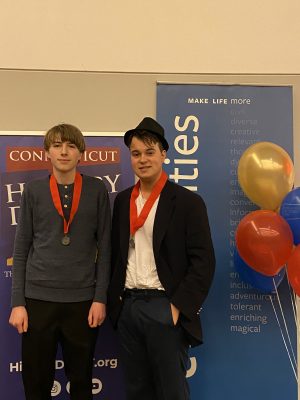 s from students at the Mansfield Regional Contest:
s from students at the Mansfield Regional Contest: 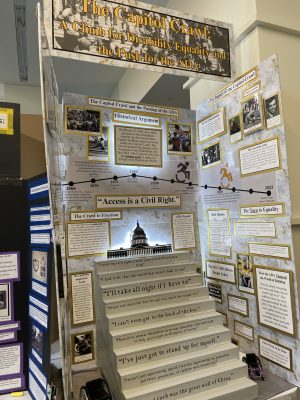
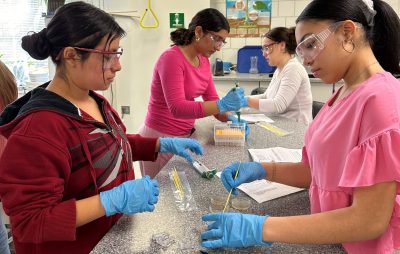


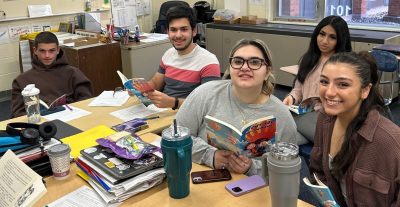
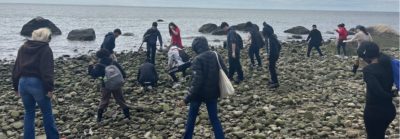
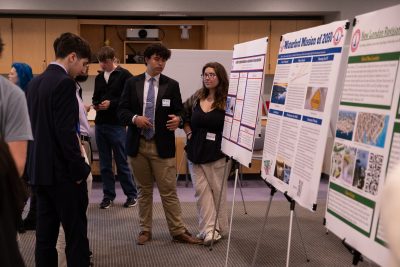 Claudia Koerting, UConn ECE Marine Science Faculty Coordinator, organized and led the event as she has for the past 10 years with the goal of extending student learning outside of the classroom and building relationships between students, instructors, and UConn faculty. This end-of-year event celebrates the academic achievements of the students throughout their UConn Marine Sciences courses taken through UConn ECE and exposes them to the UConn Avery Point faculty and facilities.
Claudia Koerting, UConn ECE Marine Science Faculty Coordinator, organized and led the event as she has for the past 10 years with the goal of extending student learning outside of the classroom and building relationships between students, instructors, and UConn faculty. This end-of-year event celebrates the academic achievements of the students throughout their UConn Marine Sciences courses taken through UConn ECE and exposes them to the UConn Avery Point faculty and facilities.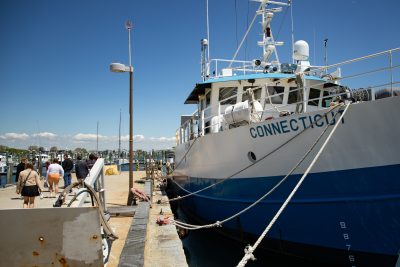 sonal research and life as a UConn student, and then took to the campus in the afternoon to explore.
sonal research and life as a UConn student, and then took to the campus in the afternoon to explore.